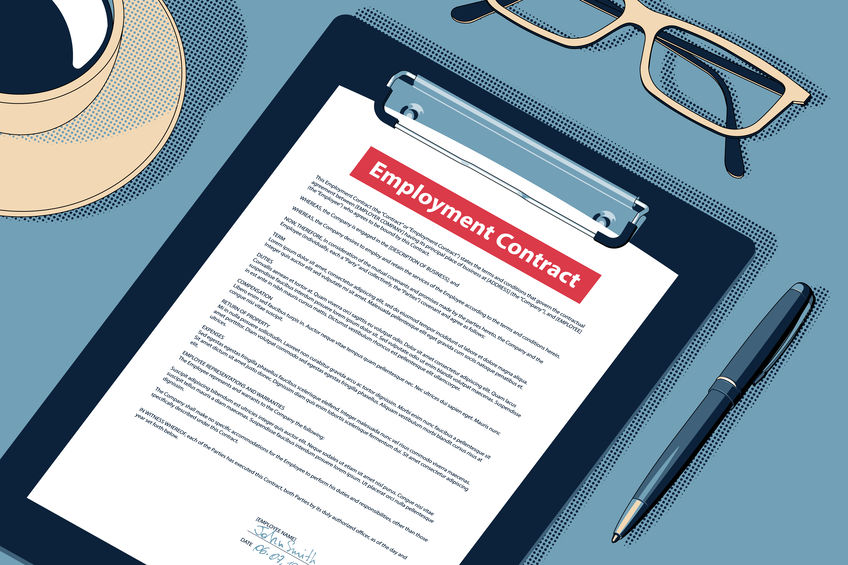What are the Consequences of Treating an Employee as an Independent Contractor?
The risks involved in the misclassification of workers as independent contractors rather than employees are serious. Federal and state agencies have the authority to impose both monetary and non-monetary sanctions against employers who misclassify their workers. Yet, employers remain subject to civil liability with respect to the claims of their workers, as well as to potential criminal liability. In addition, misclassified employees suffer the loss of certain benefits and protections, such as family and medical leave, overtime, minimum wage, and unemployment insurance. Moreover, as both federal and state governments have struggled with revenue shortfalls, various departments and agencies have started cooperating with one another to curtail worker misclassification to fill revenue gaps. Thus, companies that improperly classify their workers are at serious risk of significant assessments by federal and state agencies, various penalties, and even class action litigation.
What is the Penalty for Classifying an Employee as an Independent Contractor?
Specifically, where an employer willfully misclassifies workers, the Internal Revenue Service (IRS) may impose penalties equal to the full amount of such taxes as should correctly have been withheld (i.e. income taxes, social security taxes, medicare, etc.). Under section 6672 of the Internal Revenue Code, this penalty may be assessed simultaneously on both the company and on its officers personally, should the officers be found responsible. Additional fines plus interest may be imposed for an employer’s failure to file necessary tax returns, as well as for the resulting failure to pay necessary taxes and withholdings.
It does not end there, however. Other agencies, such as the U.S. Department of Homeland Security (DHS), may impose additional penalties in the amount of $1,000 for an employer’s failure to comply with Form I-9 requirements. These penalties may readily relate to several years of past noncompliance. Under the Fair Labor Standards Act, for example, the U.S. Department of Labor (DOL) may impose penalties for willful violations dating back as far as three years. The same is true for penalties imposed by the IRS, while the DHS may penalize violations throughout an even bigger timeframe of five years. Thus, some employers could face multiple penalties for every worker they have ever employed.
Is Employee Misclassification Illegal?
Yet, given the admitted difficulty for employers to determine whether their workers are in fact employees or independent contractors, employers can potentially avoid some or all liability:
- Safe Harbor: Section 530 of the Revenue Act provides a safe harbor for businesses that improperly classified employees as independent contractors. In particular, an employer can continue to treat a worker as an independent contractor and be relieved of employment tax and income tax withholding liability, including any interest or penalties, if all three of the following requirements are met: (1) the employer had a reasonable basis for misclassifying a worker as an independent contractor. The employer is deemed to have had a reasonable basis if the treatment of such worker resulted from reliance on either: a) judicial precedent, published rulings, or technical advice with respect to the taxpayer; b) a past IRS audit in which no employment tax assessment was attributable to the treatment of individuals in positions substantially similar; or c) a long-standing recognized practice of a significant segment of the industry in which such individual was engaged; (2) the employer, as well as any predecessor business, treated the workers, and any similar workers, as independent contractors for all applicable periods beginning after December 31, 1977; and (3) the employer filed Form 1099 MISC (Miscellaneous Income) for each worker, if such form was required. It necessarily follows that employers may be denied the protection of section 530’s safe harbor if they inconsistently classified workers who are doing the same tasks, or if they did not file the appropriate tax forms consistent as required for classified independent contractors.
- Classification Settlement Program (CSP): Where an employer is under audit and has partially met section 530’s safe harbor requirements above, the employer may receive reduced assessments in exchange for prospective reclassification. To be eligible, the employer must at least have fulfilled the reporting consistency requirement under section 530.
- Voluntary Classification Settlement Program (VCSP): The VCSP allows eligible employers to obtain relief similar to the relief available under the CSP. In contrast thereto, however, participating employers voluntarily seek to change the prospective classification of their workers, i.e. employers do not qualify if they are already under audit by the DOL or state government. The VSCP applies to employers who currently treat their workers as independent contractors but wish to prospectively treat them as employees instead. Here too, in order to qualify, employers must have been consistent in their treatment of those workers whom they seek to reclassify, including having filed all their required Forms 1099 for the previous three years. Where the IRS or DOL has previously audited an employer concerning the classification of the workers, the employer will qualify for the VCSP only if the result of such audit have been complied with and the employer is not currently contesting the classification in court. To participate in the VCSP, employers must apply by filing Form 8952.
- Form SS-8: Finally, employers who do not want to take the risk of misclassifying their workers but are still uncertain whether a worker is an employee or an independent contractor can file Form SS-8 with the IRS. Likewise, Form SS-8 may be submitted by the worker as well. The filing of Form SS-8 serves as the employers’ or workers’ request that the IRS officially determine a worker’s status. Even though it could take at least six months to receive a determination, a business that continually hires the same types of workers to perform particular services may benefit from this option and avoid potential future liability altogether.



One Response